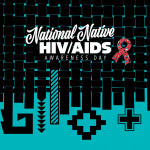“When you ask people I work with about me, they will say that Guillermo is always thinking from the micro to the macro.” The Guillermo in question is the president of the Latino Commission on AIDS (LCOA), Guillermo Chacón. The nonprofit group advocates for HIV/AIDS prevention and overall health care for Latinos. He has been its leader since 2010.
Chacón began working with LCOA in 1995. “The second president of the agency was Dennis deLeon, a giant. He honored his last name: ‘the lion.’ He was not only a leader but also someone who was doing amazing work,” Chacón says. “He brought me on. I had done some work in the HIV field before, but it was Dennis who really got me involved.”
Chacón grew up in El Salvador. “I come from a very socially active family,” he says. “Both my parents encouraged all of us—there’s another brother and two sisters—to do community organizing through our parish.” Although they were a middle-class urban family, they understood their responsibility to the larger community. Chacón’s brother works on migration issues, his older sister works in a local parish and his baby sister is a teacher. “All of us are in the social, education or health services sectors,” Chacón says. “I think it is wonderful.”
Chacón’s Uncle Antonio was also a big influence on him and his work. “He was the uncle who would give you the best time. My uncle was a gay man, and he was in the closet. I learned about him more as I reached my 20s. And then he passed.” Chacón, who is straight, credits his gay uncle with helping him to be more thoughtful, loving and caring. “When I started to do more work around HIV and sexual health work with the commission, I connected the dots,” Chacón says. “How important it is to validate and embrace and understand who we are as a person, yes, but also who we are as a community.”
This compassion for others and sense of community responsibility are central to Chacón’s work at the commission. “You always have to pay attention to who is less visible,” he says. “I always try to elevate the trans community and gay and bi men and women but also native folks and Black folks. If you look at history, those folks remind each of us to learn more about them and at the same time be better partners to make a difference.”
LCOA will honor its 30th anniversary on National Latinx HIV Awareness Day, which is marked each October 15, and Chacón is focusing on the agency’s future. To that end, he recently became a member of the PresidentialAdvisory Council on HIV/AIDS.
“I want to go deeper in doing a better job,” he says. “We have a campaign called ‘Zero Transphobia, Zero Homophobia,’ and I want to go deeper in addressing stigma in the community as a whole, especially the Hispanic/Latinx community, because there’s nothing worse than homophobia and transphobia in our society.”
Chacón is adamant that any person of any gender identity should be able to get care without judgement. When we talk about public health and HIV, he says, we must remove barriers that keep people from accessing care. “Because it’s not just about you, it’s about who we embrace in this journey,” Chacón adds. “Life is a one-way ticket, and we better take advantage of this ride.”







Comments
Comments